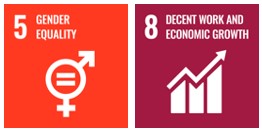Target: Promoting sustainable and ethical practices in our supply chain
Forest certification can be used to demonstrate that a forest has been managed sustainably. Forest certification focuses on two key elements: sustainable forest management and the wood supply chain. Metsä Group has two international forest certification systems in place: PEFC and FSC®. Owner-members are offered the opportunity to certify their forests in accordance with the PEFC and FSC systems, and are paid a higher price for certified wood. We also promote certification in cooperation with our guest suppliers.
We actively participate in the development of certification systems nationally and internationally so that the systems are suitable for northern forests and forest ownership structures.
We collect information about the origin of materials through surveys. Our goal is that the countries that produce the raw materials will be an explicit part of risk analysis, and that we can better target our background checks and audits on deliveries from high-risk countries.
We require that all our suppliers adhere to the principles of Metsä Group’s Supplier Code of Conduct. They include our minimum standards for respecting the environment and human rights, as well as responsible business practices.
We use supplier background checks, risk analyses, assessments and audits to help us with our procurement. We focus more detailed assessments on suppliers important to business continuity, or whose branch of industry or operating area involves potential risks related to sustainability. One of the key measures for assessing supplier responsibility in recent years has been the introduction of the EcoVadis tool.
We have set a shared sustainability target with all our partner suppliers. These goals include aspects such as reducing greenhouse gas emissions in the value chain.
Metsä Group level activities towards 2030
| We agree common sustainability targets with our key suppliers. These include reducing Scope 3 greenhouse gas emissions with Andritz, developing renewable products or raw materials with Kemira, halving emissions from transports with Finnish railroad company VR and reducing maritime emissions with Dutch shipping company Royal Wagenborg. | Developing new wood-based products with partners. Our Äänekoski bioproduct mill has fostered a value-creating network of partners who utilise the pulp and by-products of our pulp production. Examples of new innovations include wood-based textile fibre named Kuura and Muoto™ fibre products. |
Key Performance Indicators by 2030
| 100% share of certified wood |
| 100 % traceable raw materials |
| All suppliers: 100 % commitment to the Supplier Code of Conduct |
| Core suppliers: 100 % supplier assesments and audits |
| Partner suppliers: 100 % joint sustainability target |



